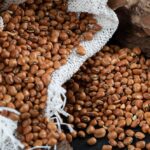Starting a small farm can be a fulfilling venture that combines entrepreneurship with the beauty of nature. For South African farmers considering this path, it’s important to plan strategically to maximize resources, manage risks, and ensure long-term sustainability. Here’s a guide to help you start your small farm with confidence.
1. Define Your Vision and Goals
Clarify what you want to achieve with your small farm. Are you aiming to produce for local markets, specialize in organic crops, or offer agritourism experiences? Defining your goals helps shape your decisions, from choosing crops and livestock to determining your marketing strategy.
2. Select the Right Land
Land choice is crucial. Look for land that matches your farming goals. Consider factors such as soil type, climate, water availability, and proximity to markets. Engage with local agricultural experts to analyze soil quality and gain insights into the most suitable crops or livestock for your region.
3. Plan Your Farm Layout
Design your farm layout to optimize space and efficiency. Include zones for crops, livestock, water sources, storage, and pathways. Proper planning ensures smooth operations and reduces future complications.
4. Start Small and Scale Gradually
It’s tempting to dive into farming with big ambitions, but starting small allows you to learn, adjust, and avoid significant financial risk. Focus on a few crops or a manageable number of livestock at first, then expand as you gain experience and build profitability.
5. Invest in the Right Equipment
Choose farming tools and machinery that match the scale of your operations. For small farms, consider multipurpose equipment that saves space and reduces costs. Make use of manual tools or small-scale machinery initially, and upgrade as needed.
6. Embrace Sustainable Practices
In South Africa, sustainability is key to long-term farming success. Employ practices such as crop rotation, water conservation techniques, and organic farming to enhance soil health and reduce reliance on chemical inputs.
7. Stay Informed and Network
Join local farming groups, attend workshops, and follow agricultural publications to stay updated on market trends, new techniques, and potential funding opportunities. Building relationships with fellow farmers can provide invaluable support and shared resources.
8. Comply with Legal Requirements
Ensure your farm meets all regulatory standards, from obtaining necessary permits and licenses to understanding food safety laws. Consult local authorities and agricultural bodies to ensure full compliance.
9. Market Your Produce Effectively
Identify your target market and create a marketing strategy. Use social media, local farmer’s markets, and partnerships with retailers to build a customer base. Highlight unique selling points such as organic certification or traditional farming methods to attract buyers.
10. Monitor Finances Closely
Keep meticulous records of income, expenses, and investments. Financial tracking helps you manage cash flow, plan for expansions, and respond to challenges. Consider working with an accountant experienced in agricultural finance.
Starting a small farm in South Africa requires thoughtful planning and dedication. By defining clear goals, choosing suitable land, employing sustainable practices, and maintaining strong financial oversight, you can build a successful farming business that contributes to local communities and the broader agricultural economy.







